Aluminium Casting Vs. Steel Casting: Which Alloy Is Right For Your Product
Author: SAIVS Date Published: May 15,2023
Introducing Green Sand Casting
Casting products are used in a variety of industries, making casting an important manufacturing process. Many of these products are used by people every day. Casting allows even the most complex designs to be realised. Casting can be used to produce designs, shapes, and forms of any kind.
There are a variety of materials that can be used for casting, with steel and aluminium being two of the most popular. Their strength, durability, and aesthetic appeal make them ideal for casting. manufacturers rely on the properties of these two materials to produce the products they need
They both have advantages and disadvantages. Despite this, manufacturers still prefer them because of their good properties. It is helpful to compare them to find out which is a better alternative. Casting materials should be evaluated according to their many properties. A manufacturer’s choice is based on the type of product to be manufactured and on what it will need in order to achieve its purpose.
Risers are reservoirs of molten metal used to ensure that all regions of the casting are adequately fed until solidification is complete. Risers also act as heat sources and thereby help promote directional solidification. Molten metal is introduced into the mold cavity through a sprue and distributed through a system of gates and runners.
The following table compares aluminium and steel casting properties.
1. Strength
Steel is generally stronger than aluminium. However, steel is not the strongest metal. If a product requires enough strength, steel is a good choice. It can be used in a variety of applications and industries. Compared to steel, aluminium is also strong but appears inferior.
2. Weight
Steel is generally stronger than aluminium. However, steel is not the strongest metal. If a product requires enough strength, steel is a good choice. It can be used in a variety of applications and industries. Compared to steel, aluminium is also strong but appears inferior.
3. Corrosion Resistant
Despite its corrosion resistance, steel is more prone to rusting than aluminium. Because of this, aluminium is preferred for products used in moist or wet environments. Various kinds of steel exhibit varying levels of corrosion resistance. For example, carbon steel is prone to rusting easily. Steel such as stainless steel offers good corrosion resistance. For rust-free products, aluminium casting is an excellent choice.
4. Cost
Depending on the type of casting, the cost may vary. A steel or aluminium casting can be very expensive, especially if they were made of high-quality alloys. There may be differences in cost based on the type of product made, quality, and brand or manufacturer.
5. Heat Strength
Compared to steel castings, aluminium castings have a low heat strength. Aluminium melts at low temperatures, so it can be used for both creating products and for modifying them. However, if the product will be used in a high-temperature environment, steel casting is recommended.
6. Functionality
The workability of the casting does not end once it has been made. There may still a lot of processes needed to create the final product. In terms of workability, aluminium is easier to melt, which makes it more fluid and easier to pour into molds. It is also easier to work on aluminium castings since they are less stiff than steel, while steel castings require much more effort to work on.
In order to determine the type of casting to use for a particular product, the below properties must be considered.
Aluminium Casting Steel Casting Services_metal casting Services_Offshore Industrial Manufacturing Solutions_OmnidexCastings
Steel Casting Services_Aluminium Casting Services_Metal Casting Services_Offshore Industrial Manufacturing Solutions_OmnidexCastings
Generally, both castings have their plus and minus points. Yet both are equally effective and useful in producing strong, durable products that are required by many industries.
 |  |
Applications of aluminium casting vs steel casting
Castings made of aluminium and steel can be used for a variety of purposes. Products made from them are used by a wide range of industries.
Aluminium Casting Applications
Aluminium castings have been used in the aerospace industry for many years. Due to their strength and lightweight properties.
Cast aluminium is used for automotive parts and supplies. These include water pump housings, oil pumps, transmission parts, connectors, and more. Aluminium castings are suitable for these products due to their lightweight, strength, and durability.
Aluminium castings can be used to make brackets for heavy-duty equipment like crankcase housing, motor housing, and gearbox housings. Golf product and equipment making including golf balls warmers, grips, and clubs.
Steel Casting Applications
Steel castings are often used to make food processing and culinary equipment and machinery. 304 & 306 stainless alloys are a common choice for these components. These Casting products are used more frequently in metal grinder parts, coffee machines, oven parts, and many more.
A number of kitchen and cutlery products such as spoons, forks & knives are often manufactured using a steel casting process.
Marine components and equipment are manufactured with steel castings in the marine industry.
Used to make medical supplies and tools such as surgical tools, operating room equipment, operating tables, stretchers, wheelchairs, etc.
In the construction industry, a vast array of construction equipment, machines, and components use the steel casting process.
Aluminium vs. steel: Which Casting is better?
There are many factors to consider before choosing what material to use for casting. Aluminium casting and steel casting are both suitable for a wide range of products. The best choice for inexperienced buyers is to consult an expert who will provide advice on the best materials to use for the application.
Omnidex Metal Casting Services
Omnidex is a leading manufacturer of aluminum and cast iron castings. We focus on manufacturing high-quality products. You can contact us by email if you have any questions or if you need metal casting foundry cooperation
Why Choose SAIVS™ as Your Supplier?
1.Superb Quality Control Management
At SAIVS, we take pride in our perfect quality management systems and procedures, which guarantees the excellent performance of all our producs, being a professional Investment Casting | Die Casting| Sand Castingmanufacturer in China.
2.Rich Production Experience
With 20 years of experience in production, SAIVS has a deep understanding of the market and trends, and strives for continuous research and innovation. This has created advantages in both the product's performance and appearance.
3.Competitive Prices
As a Chinese factory committed to becoming the most cost-effective Investment Casting | Die Casting| Sand Castingexporter in China, SAIVS provides high-quality products at advantageous prices. By lowering costs and increasing efficiency, we ensure that our customers receive the best possible value for their investment.
4.Perfect After-sales Service
At SAIVS, we strive to provide superior customer service that meets and exceeds expectations. We are always available for any questions or concerns you may have, and we stand by our commitment to providing excellent after-sales support.
Related Posts
-
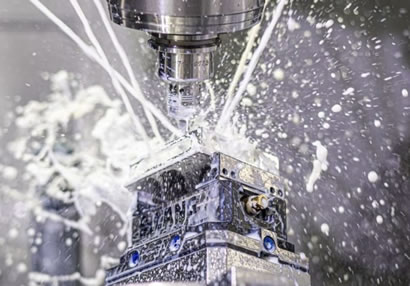
How CNC Machining Is Changing the Medical Industry
Digital motors, sophisticated software, and specialized cutting tools are yielding precision, repeatability, and scalability in CNC machining.Products, devices,...
-
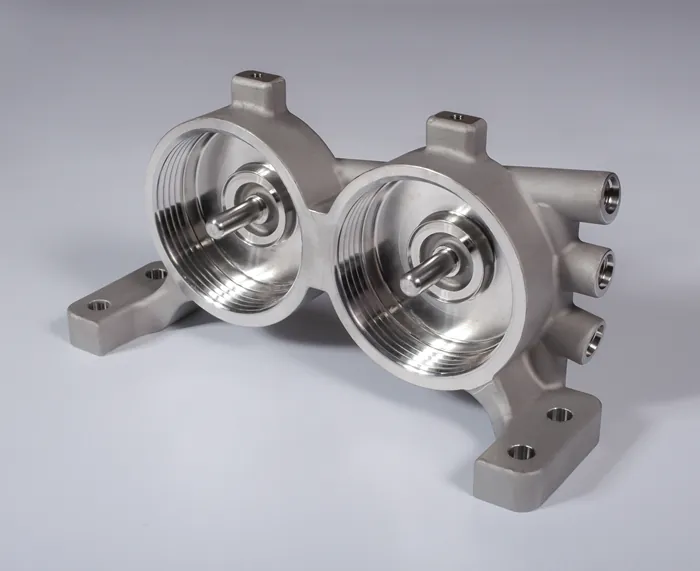
Factors Affecting the Dimensions of Stainless Steel Castings
Learn about the factors affecting dimensional accuracy, including material expansion and deformation, and understand why choosing an experienced foundry like SA...
-
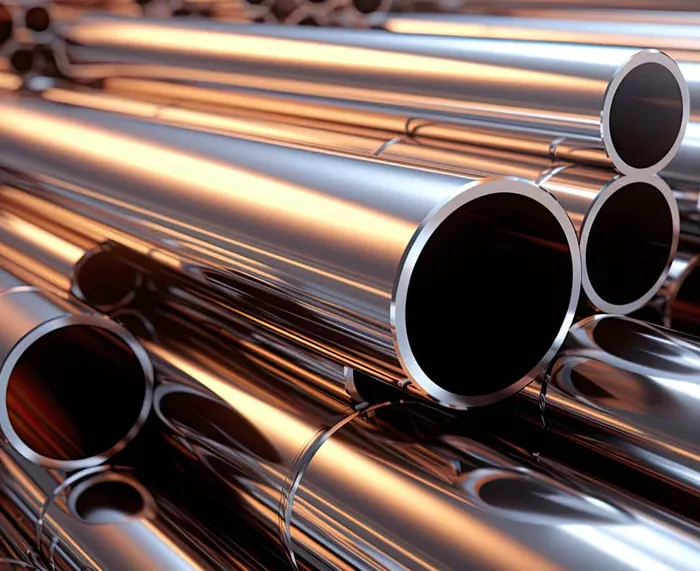
Aluminum: A Versatile Metal with a Duality in Spelling
Aluminum is a versatile metal with a wide range of applications. This article will discuss the history of aluminum, its properties, and its applications.
-
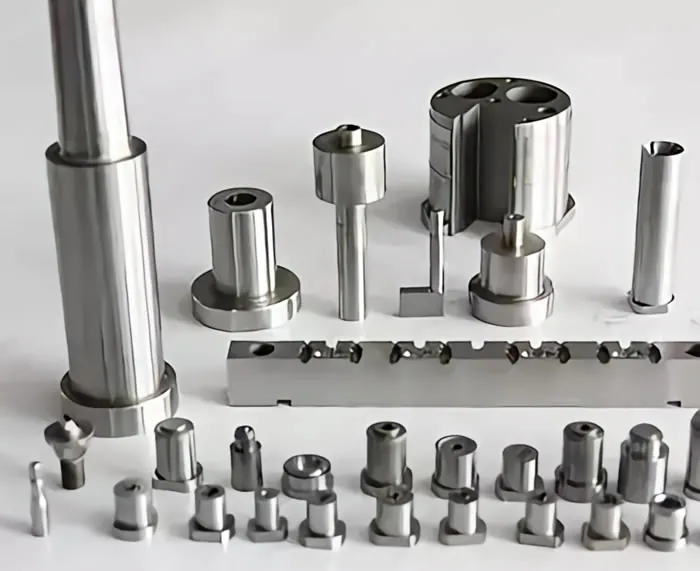
Current Status and Trends in Stamping Die Manufacturing in China
With the rapid development of modern national economy, the market demand for stamping dies is growing, which puts forward higher requirements for the desig
-
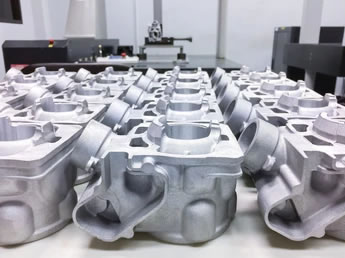
Aluminium Casting Vs. Steel Casting: Which Alloy Is Right For Your Product
Introducing Green Sand CastingCasting products are used in a variety of industries, making casting an important manufacturing process. Many of these products ar...
-
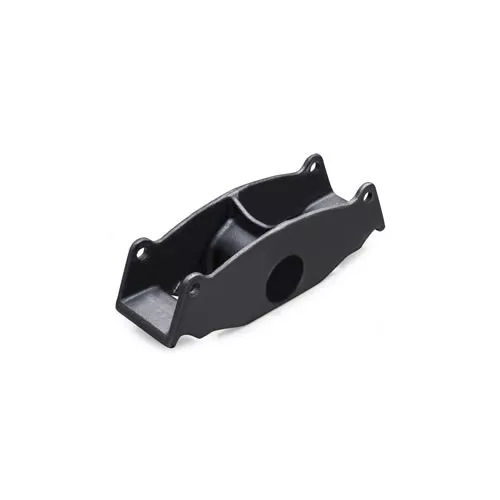
How to shell stainless steel Investment casting?
The production process of stainless steel investment castings is relatively complex, and the requirements for dimensional accuracy are high. The shell making pr...

